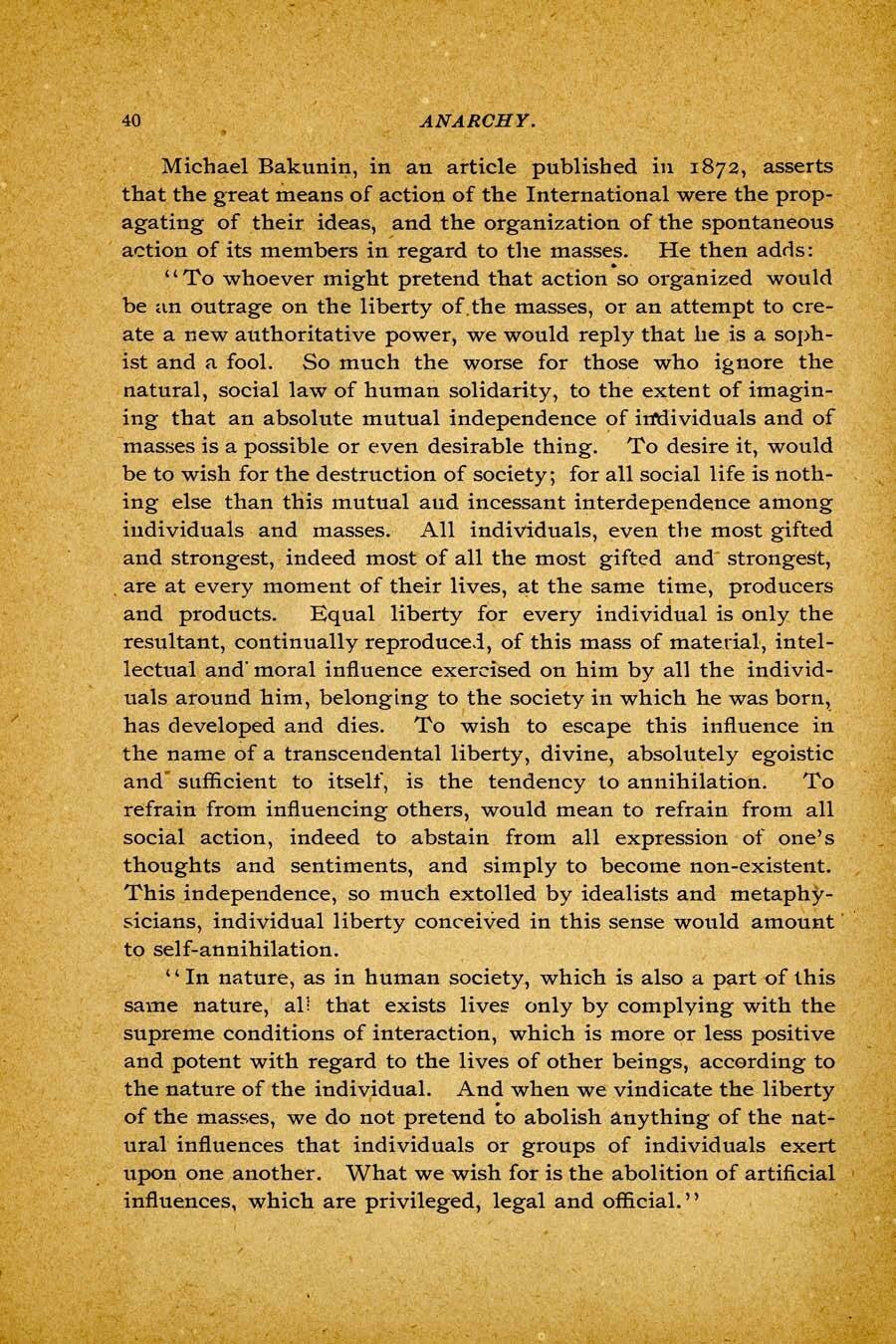Michael Bakunin in an article published in 1872, asserts that the great means of action of the International were the propagating of their ideas, and the organization of the spontaneous action of its members in regard to the masses. He then adds:
"To whoever might pretend that action so organized would be an outrage on the liberty of the masses, or an attempt to create a new authoritative power, we would reply that be is a sophist and a fool. So much the worse for those who ignore the natural, social law of human solidarity, to the extent of imagining that an absolute mutual independence of individuals and of masses is a possible or even desirable thing. To desire it, would be to wish for the destruction of society; for all social life is nothing else than this mutual and incessant interdependence among individuals and masses. All individuals, even the most gifted and strongest, indeed most of all the most gifted and strongest, are at every moment of their lives, at the same time, producers and products. Equal liberty for every individual is only the resultant, continually reproduced, of this mass of material, intellectual and moral influence exercised on him by all the individuals around him, belonging to the society in which he was born, has developed and dies. To wish to escape this influence in the name of a transcendental liberty, divine, absolutely egoistic and sufficient to itself, is the tendency to annihilation. To refrain from influencing others, would mean to refrain from all social action, indeed to abstain from all expression of one's thoughts and sentiments, and simply to become non-existent. This independence, so much extolled by idealists and metaphysicians, individual liberty conceived in this sense would amount to self-annihilation.
"In nature, as in human society, which is also a part of this same nature, all that exists lives only by complying with the supreme conditions of interaction, which is more or less positive and potent with regard to the lives of other beings, according to the nature of the individual. And when we vindicate the liberty of the masses, we do not pretend to abolish anything of the natural influences that individuals or groups of individuals exert upon one another. What we wish for is the abolition of artificial influences, which are privileged, legal and official."
